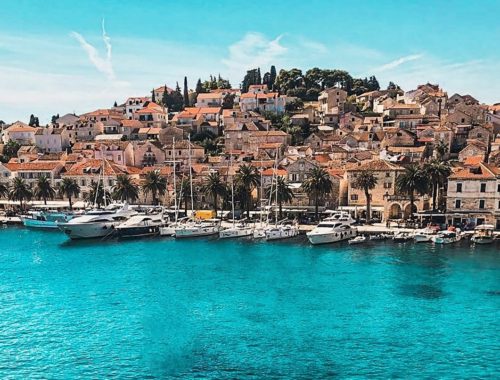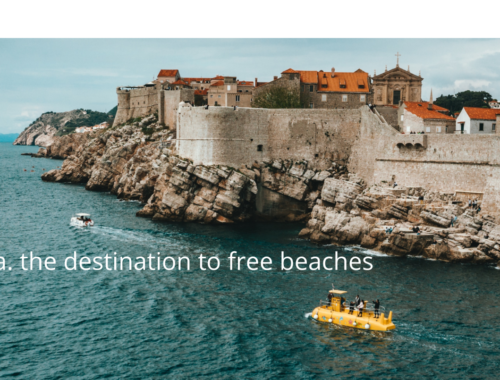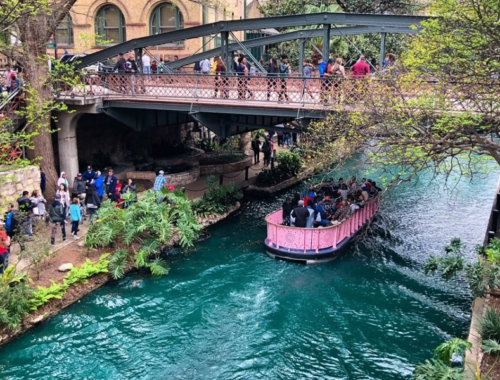
Tourism at the Maldives, Caribbean Islands, and policy of Safeguarding The Environment?
Come visit the Maldives, its speaker supplicated the world at this vintage’s United Nations General Assembly, moments before switching to an warm-blooded plea for help combating climate change. The verging supplications illustrated a central dilemma for numerous small islet developing sovereignties their livelihoods or their lives?
The United Nations recognizes 38 member sovereignties, scattered across the world’s waters, as small islet developing sovereignties grouped together because they face “ unique social, remunerative and environmental challenges.”
This bloc is particularly vulnerable to climate change. This bloc is also particularly dependent on tourism — a significant wheelman of climate change, responsible for 8 percent of global carbon dioxide inrushes alone, according to sustainable tourism expert Stefan Gössling — and an sedulousness devastated by the ongoing coronavirus scourge.
The mire these islets find themselves in is constitutionally recursive Attract tourism for moneymaking survival, which in turn contributes to climate change, which in turn bleaches the prismatic reefs and destroys the pristine sands that attract sightseers. As is, by the end of the century, these low-lying islets could drown entirely.
“ The difference between1.5 degrees and 2 degrees is a death holding for the Maldives,” President Ibrahim Mohamed Solih told theU.N. General Assembly last week.
The perennial noon is an opening for each of the multinational body’s 193 members to step into the limelight on the world stage. But the Maldives — possibly best known widely as an Indian Ocean playground for wealthy honeymooners and Bollywood celebrities — had a particularly high- profile platform this span. Its foreign minister is serving as the General Assembly’s presider and Solih was speaking third overall, just afterU.S. President Joe Biden.
But the climate change prayers are nothing new, made span after span as these islets are pummeled by storms and the roller rise like a “ slow- moving killer,” as Colgate University’s April Baptiste puts it.
Baptiste, a professor of environmental studies as well as Africana and Latin American studies, researches environmental justice in the Caribbean region. She says the islet states’ prayers had gone ignored for spans because they were constitutionally seen as “ unessential.” With little land, political power, and pecuniary capital, it was easy to overlook their plight. These are also islets with a history of exploitation that dates back centuries and nations whose full- time occupants — not sightseers — are primarily Black and brown.
“ You have that status of race, racism, marginality to take into consideration,” she said. “ I absolutely believe that’s at the heart of the discourse as to why small islet developing nations aren’t taken seriously.”
People and governments have taken matters into their own hands over recent bits.
One man from the islet nation of Kiribati sought exile status in New Zealand on the ground that climate change posed an experimental peril to his home, though he was ultimately deported. This onetime week, Vanuatu heralded it would seek to bring climate change before the International Court of Justice. Although largely representational — any ruling would not be legally binding — the move, as intended by the government, seeks to clarify multinational law.
Last month, a group of Pacific islet nations, contending with worming saltwater that destroys crops and pollutes hard stocks, took the step of declaring their traditional ocean boundaries would remain whole, yea if their lidos shrank beneath the swells.
Gössling, a professor at Sweden’s Linnaeus University School of Business and Economics, and Daniel Scott, a topography and environmental supervision professor at Canada’s University of Waterloo, are two sires of the Climate Change Vulnerability Index for Tourism. With the thing of bringing the issue to policymakers’ attention, they related the countries with tourism thrift most at trouble from climate change. The small islet developing sovereignties made up a substantial portion of the list.
“ The Maldives connected this eras ago and they directed out‘We ’re going to continue our tourism development, because that’s the only way we can make Croesus in the ensuing couple decades before our isles are lost, ’” Scott said.
For the small isle developing countries, this central climate change strain between lives and livelihood is imaged in their response to the coronavirus affliction. To forestall the poison’s spread and save lives, they closed their borders, and their tourism- centered husbandry were therefore destroyed over the former 18 months.
Mauritius is n’t wholly dependent on tourism, but that sector does make up a significant measure of its foreign gain, says the deathless representative to the United Nations for the bitsy Indian Ocean isle east of Madagascar. Its borders exhaustively continue in October, and Jagdish Koonjul said Mauritius hopes to attract rubberneckers between either and coming summer.
Mauritius, Koonjul said, is “ really lucky” compared to others in the bloc because of its juicy diversification, like high land, and coral reef that prevents attrition.
But it’s not safe from climate change. Mauritius and other small islet developing nations are looking to the bigger, more arable countries to buy into an ambitious commitment at the nearing United Nations climate conference in Glasgow.
“ We miss this train now, and we’re doomed,” Koonjul said.
The scores of speeches at this date’sU.N. General Assembly tended to follow a rubric. They opened with gestures directed at the General Assembly’s speaker and either touched on a laundry list of themes possibly a pet issue, but clearly conflict, coronavirus, and climate change. The rhetoric hourly blended together but the speeches from the leaders of the small islet developing sovereignties — with the most to lose in the near future — stood out with stark poetry echoing Koonjul.
“ Will Tuvalu remain a member state of theU.N.However, the primary minister of the Pacific Ocean country, on Saturday, If it’s ultimately submerged? Who’ll help us?” asked Kausea Natano.
The countries had specific asks, including immediate and significant reductions of glasshouse gas drains, debt restructuring, and fiscal backing, especially given the impact of the coronavirus on their tourism-dependent parsimony.
“ Industrialized countries have an obligation to back the countries most affected by climate change because they created a problem in the first exemplification,” Gaston Browne, high minister of the Caribbean Sea’s Antigua and Barbuda, said Saturday.
The same day,St. Vincent and the Grenadines premier minister Ralph Gonsalves cast the major powers’ conduct so far as little farther than “ pious mouthings and frontier tinkering.”
“ On this, humanity is at the shroud hour. Can we meet the challenge? We may not live to find out the answer if the usual continues,” the Caribbean nation’s premier said.
Delivering the fat fate of these countries is complex. Baptiste says there’s no overarching policy aimed at retraining people whose livelihoods are vulnerable in new trades.
And Gössling argues that, while they ’re not the criminals behind global warming, the small isle developing commonwealths are n’t directly bearding the conflict between climate change averting measures and their tourism reliance.
“ I also allow there’s nowise been serious labors by the ( small isle developing lands) to actually also consider different lucrative sectors, because really hourly it’s been really complexion-presumed that you would fasten on tourism, you would develop for tourism, and that you, by portrait, either fair would go dependent on tourism,” he said. “ And I allow the strange thing — this conflict has nowise been vocalized by ( small isle developing lands).”
What has been vocalized is a clarion call for healthy action taken by rich, high countries. Now that the ramifications of climate change have reached countries that could long pretend it did n’t breathe, the small isle developing lands hope the communication is ultimately getting through.
The rhymester John Donne wrote that “ no man is an islet entire of itself.” In the same phraseology, Solih drove home the point the islet nations have been making for spans “ There’s no guarantee of survival for any one nation in a world where the Maldives ending to live.”
You May Also Like

Top 10 beach destinations for wealthy investors
October 18, 2021
Best ranking beaches of the world
October 17, 2021
